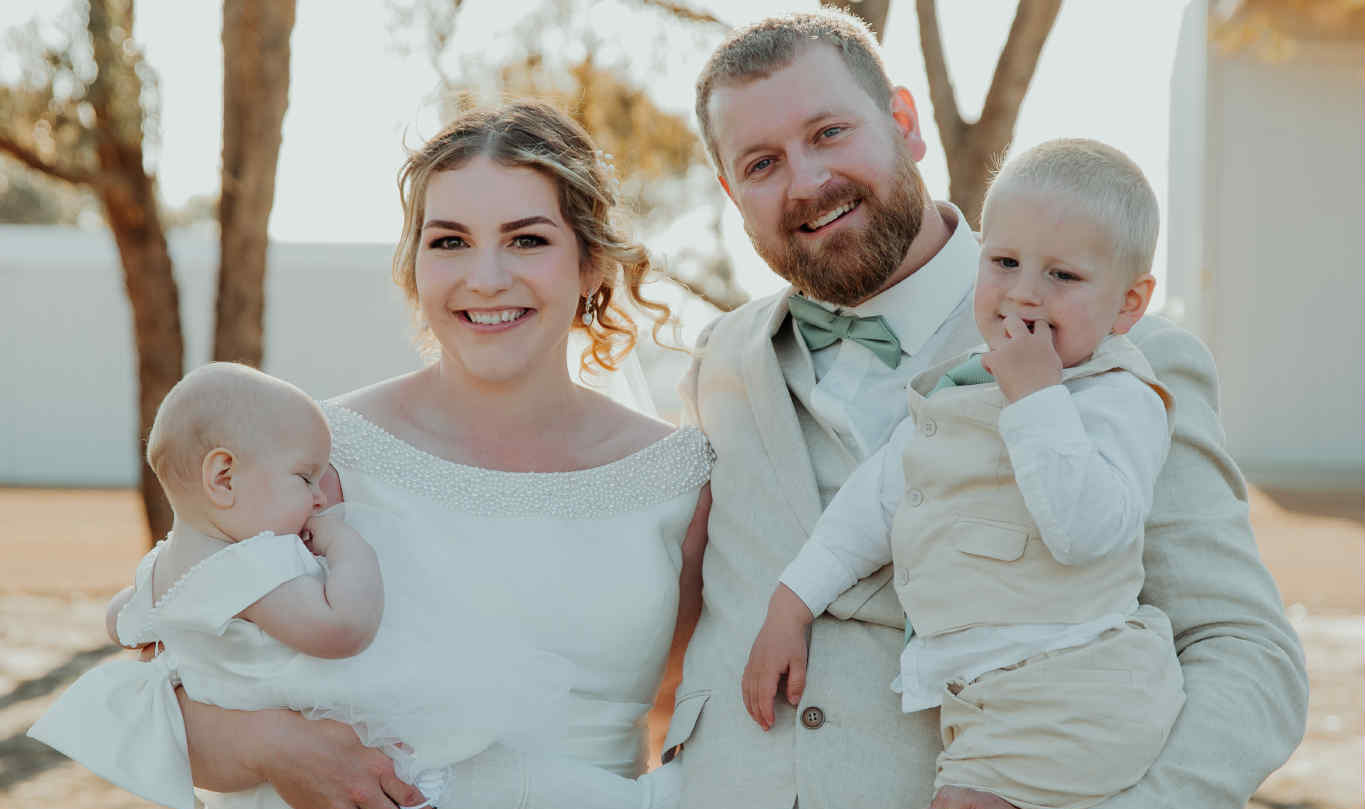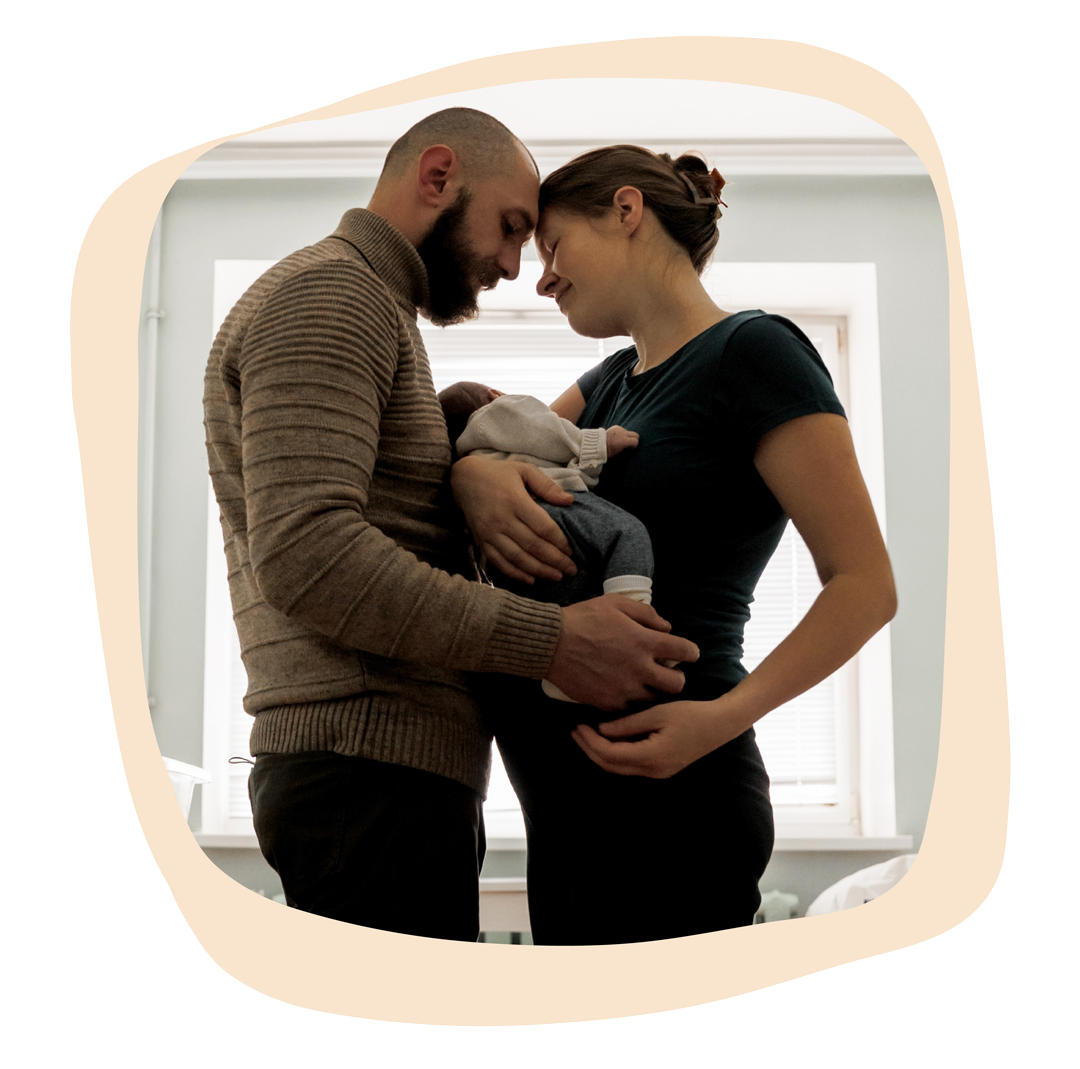Alison's story:

Sponsorship for Perinatal Mental Health Week is not a funded arrangement; no financial contributions are exchanged as part of this recognition.
Being located an hour and a half’s drive from the nearest grocery store or a mother’s group, motherhood with my second child looked very different for me than the first time around (when we lived closer to town on another farm). As a farm worker, I found it very difficult to break into the community with my first child, so the isolation was even worse the second time.
We eventually found a wonderful community in Munglinup, WA, where our playgroup was predominantly made up of farm workers’ partners and wives, many of whom were at similar stages of motherhood.
I discovered Motherland through a Landline episode which my husband sat me down to watch during my first harvest as a mother. I remember sitting there bawling my eyes out because, for the first time, I realised I wasn’t alone. I was finally able to see an in-person GP as what I thought I was experiencing “wasn’t normal”, especially as I didn’t experience this first time around. However, because I was outside the six-week postpartum period, it was dismissed as unrelated to postpartum issues as unrelated to postpartum issues.
"...for the first time, I realised I wasn’t alone."
I reached out to the Motherland chat group on Facebook and did my best to put into words what I was experiencing and feeling, while erring in the side of caution. I was blown away by how many mums had gone through the same thing and offered their support and advice. I was experiencing blackout rage to the point where I was terrified to be alone with my children. I finally had a name for what I was going through: Postpartum Rage. I’ve since learned it is very common but rarely spoken about. The vulnerability and honesty of everyone who messaged or commented were so comforting. I finally felt seen, heard, and not alone.
"I finally had a name for what I was going through: Postpartum rage."
I was directed to Gidget Foundation Australia, which offers perinatal support and counselling. I first reached out via a Telehealth GP, as that was the quickest option, but I was unable to complete a mental health care plan through that route.
So, I went back to an in-person GP, advocated for myself, and got a mental health care plan and a referral to Gidget Foundation Australia. Although there was a waitlist for the telehealth counselling sessions, it was incredibly comforting and healing as I had an answer.
Right in the thick of it all, I also participated in a Motherland Village program, and I honestly don’t know what I would have done without their unconditional support, care, and relatable motherhood journeys.
"I honestly don’t know what I would have done without their unconditional support, care, and relatable motherhood journeys."
I now have ongoing mental health care plans through my GP, which give me access to 10 free sessions per calendar year. Each appointment is flexible in timing between sessions and has made a huge impact on my motherhood journey.
Without Motherland—and the incredible women who are part of the Village program or even just contribute to the Facebook group—I don’t think I would have had the toolbox to know where to go, or the courage to advocate for myself with health care professionals.
As rural women, we are often labelled as “tough” and a “she’ll be right” mentality, but that is simply not the case. I truly believe that Motherland is helping to break down that stigma and giving each rural mother a voice. We are not alone, and it’s okay not to be okay.
"Motherland is helping to break down that stigma and giving each rural mother a voice."
Learn more about rural parenthood
Have you ever felt completely isolated, like you're navigating the challenges of raising children entirely on your own? It's a profound sense of solitude that's all too common for parents on the land, yet it's rarely spoken about. We want to be clear: this isn't a sign that you're not strong enough. It's a valid and often misunderstood response to the unique physical, mental, and emotional demands of rural parenthood—from managing farm life to the sheer distance between you and the support you need.
- Understanding the feeling: This sense of isolation can creep in from all directions. It's a symptom of the physical distance from family and friends, the pressures of combining a family with work on the land, and the limited access to local health and community services.
- A valid experience: We want to validate that these feelings are real and that you are not alone. The challenges of rural motherhood are distinct, and there is specific help available that understands your experience.
- Getting what you need: You deserve support that is as accessible as it is understanding. It's crucial to find a community or service that bridges the gap of distance and provides tailored support for exactly what you are feeling, exactly when you need it.
Extra resources
Learn more about rural parenthood
Have you ever felt completely isolated, like you're navigating the challenges of raising children entirely on your own? It's a profound sense of solitude that's all too common for parents on the land, yet it's rarely spoken about. We want to be clear: this isn't a sign that you're not strong enough. It's a valid and often misunderstood response to the unique physical, mental, and emotional demands of rural parenthood—from managing farm life to the sheer distance between you and the support you need.
- Understanding the feeling: This sense of isolation can creep in from all directions. It's a symptom of the physical distance from family and friends, the pressures of combining a family with work on the land, and the limited access to local health and community services.
- A valid experience: We want to validate that these feelings are real and that you are not alone. The challenges of rural motherhood are distinct, and there is specific help available that understands your experience.
- Getting what you need: You deserve support that is as accessible as it is understanding. It's crucial to find a community or service that bridges the gap of distance and provides tailored support for exactly what you are feeling, exactly when you need it.

Find the support that's right for you.
Answer a few short questions and we'll suggest organisations and services that can support your needs.


%201.png)


